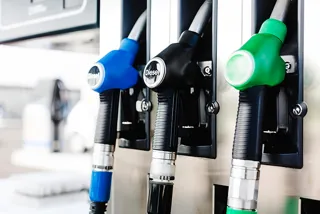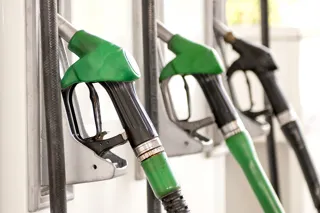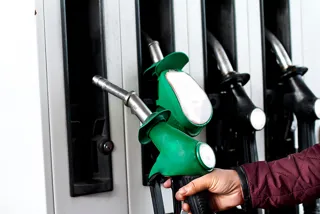The average price of petrol fell by nearly 7p a litre (6.69p) to 162.89p in September – the sixth biggest monthly drop since 2000, according to data from RAC Fuel Watch.
However, analysis also shows drivers should have seen a further 10p reduction had major retailers not upped their margins.
Since unleaded peaked on July 3 at 191.53p almost 29p (28.64p) has come off a litre, a saving of nearly £16 on a full tank (£15.75).
A litre of diesel also reduced in September but only by 3.5p a litre, finishing the month at 180.16p.
This is 19p cheaper than its all-time high price of 199.09p recorded on June 25, leading to the cost of tank falling £10 (£10.41) to under £100 (£99.09).
The average price of unleaded at the big four supermarkets also fell nearly 7p (6.6p) a litre to 161.30p, but unusually this is only 1.5p lower than the UK average – normally it’s around 3.5p cheaper.
Supermarket diesel, however, only came down 1.4p to 178.56p which is 2p less than the UK average drop of 3.58p – diesel is also normally 3.5p cheaper at one of the big supermarkets.
The record high pump prices arose due to oil being trading around $130 a barrel in mid-June.
At the end of September however, oil was back down to $87.96 – falling 5% in September alone. The Sterling to dollar exchange rate – the other important factor in determining the price drivers pay at the pumps due to wholesale fuel being traded in dollars – fell to $1.1163 having recovered from its all-time low of $1.03 on September 26.
RAC fuel spokesman Simon Williams said: “Despite September seeing the sixth biggest ever drop in the price of petrol drivers really should have seen a far bigger drop as the wholesale price of delivered petrol was around 120p for the whole month.
“This means forecourts across the country should have been displaying prices around 152p given the long-term margin on unleaded is 7p a litre.
“In stark contrast to this RAC Fuel Watch data has shown margins to be around 17p a litre – a huge 10p more than normal. And the average price of petrol at the big four supermarkets is only 1.5p lower than the UK average – less than half what it usually is which points heavily to them not playing fair with drivers.
“This is backed up by the fact that Morrisons, which was charging an average of 162p a litre for petrol at the end of September, is currently running a 5p a litre off promotion for customers spending £40 in store. This type of promotion tends only to be seen when supermarkets are benefitting from lower wholesale prices.”
Williams says that, while there are no rules on what retailers can charge for their fuel, it remains the case that the supermarkets are extremely influential in determining the UK average pump prices as they sell so much fuel.
However, he said: “As many drivers will have noticed there lots of smaller forecourts which are now selling fuel much cheaper than the supermarkets.
“We would urge everyone to shop around for the best deals rather than simply assuming the supermarkets are the lowest because they have been in the past.”























Login to comment
Comments
No comments have been made yet.